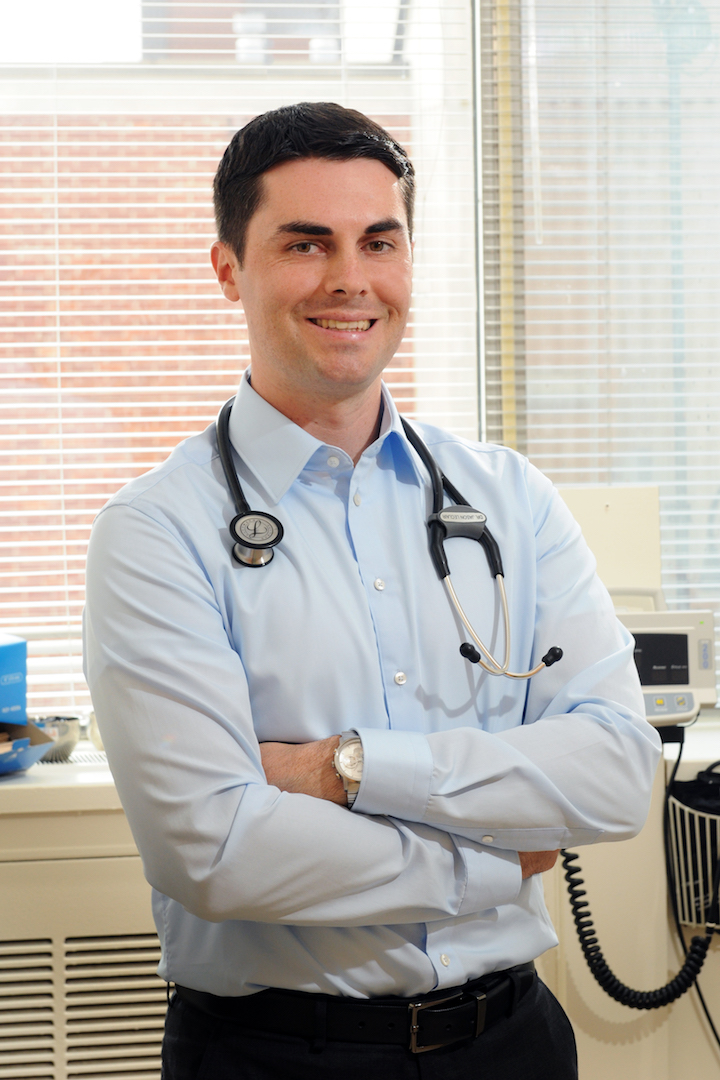
PARO’s Clinical Teaching Award recognizes the essential role that good clinical teachers play in the training of new physicians
Dr. Jason Leclair, University of Ottawa
Dr. Jason Leclair has a primary care practice at the Central Ottawa Family Medicine Associates and is an Assistant Professor at the Department of Family Medicine, University of Ottawa. Dr. Leclair has a community family medicine resident at his office and is a co-director of the Family Medicine Inpatient Teaching Services at The Ottawa Hospital. He also practices ultrasound-guided sclerotherapy at the Dr. Beaupré Vein Clinic and is a Fellow of the Canadian Society of Phlebology. He completed his BSc, medical school, and residency training all at the University of Ottawa. His main interests include medical education, hospital metrics, and evidence-based practices in sclerotherapy.
What has fuelled your passion for teaching?
My passion has been fuelled by wanting to give back. I had a lot of great teachers throughout my training in medical school and in my residency. I’ve always wanted to do the same and be the best teacher I could be. Second, I get a lot of satisfaction in seeing people develop and grow. Seeing our learners fresh out of medical school to seeing them become full-pledged additions by the end of their training is very fulfilling.
If your learners only remember one thing you’ve taught them, what would you want that to be?
Family medicine is a bit different in a way that I could teach all day, every day for five years and they would never learn everything they will need to learn for practice. So, the things that I teach them are twofold: the skills of finding information and of developing a love for learning, so they can continue to learn day in and day out.
In these challenging times of COVID-19, can you share your perspective about teaching residents?
We talk a lot about the unwritten curriculum – the things we teach that are not necessarily explicit but that residents are learning a lot from us. Things like how to deal with stress, how to be adaptable, or how to adapt your practice or hospital work for a very different time. They’re learning a lot about just being human—not forgetting that patients are people. When you see a big sign on a patient’s door that says they have a terrible infectious disease, it’s important you don’t forget that they’re a person, they have a family who may not be able to see them right now. So, there’s a lot of humanity teaching that goes into it.
How does the currently popular phrase “we’re all in this together” apply to the community of residents you have spent the last few years with?
It’s definitely a real team effort especially when we’re all on hospital service as a group. We need to take care of each other, being very aware of not just physical wellness, but mental wellness of the people around us to make sure that they’re cared for and feel supported.
What advice would you give to a doctor new to the role of clinical teaching?
1) Don’t underestimate the benefit of your experience and what that can provide to your teaching. Learning continues after graduation and in the first three to five years we learn a ton of practical knowledge and clinical skills that can be passed on to our trainees. I think the closer a teacher is to their own training the more obvious this newfound experience is.
2) Spend a lot of time talking or teaching about the intangible qualities that go into making a good physician. There are a lot of things that result in a more satisfying and successful career and not all of these things can be found in a book. These might include boundary-setting, work-life balance, practice management, and building strong professional relationships.
Do you have a personal mantra that inspires your love of medicine?
It’s the human interaction that I gain a lot of energy from and that really motivates me. Our job in medicine is about being human and being empathetic. Currently, I don’t get that same experience with these phone consultations and it’s a bit of a struggle. I miss the in-person interaction, joking around, making patients smile. I hope we can get back to that soon.
Finish this sentence: A great role model is someone who…doesn’t just demonstrate the skills and knowledge of a physician, but someone who can show the balance of life and their practice, sense of truth and enjoyment of going to work everyday.


